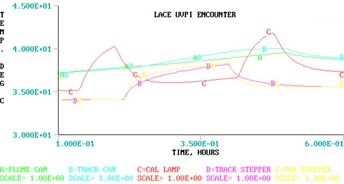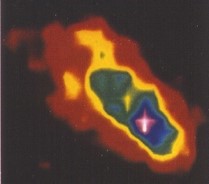Colleagues:
Optics is a crazy industry. We’re so dedicated to the digital computer
that we often overlook underlying realities. That’s especially true in
the mechanical engineering art of heat transfer. Management structures
have insisted on each discipline using its own software which has Balkanized
the disciplines of structures and heat transfer: i.e., the temperatures must be
analyzed in a finite difference (FD) code and the results imported to a finite
element (FE) code. The importation involves extensive extrapolation and
interpolation of the FD data to the much larger (often by two or three orders
of magnitude) of the FE data-set and it can lead to some peculiar results.


AEH has long preferred a more Unified
approach: Select a code that can do them both, usually an FE code, and
use engineering judgement to adapt the other discipline (usually a few boundary
temperatures). It usually requires several runs of the problem to assure
that the underlying assumptions of the adaptation were appropriate but they go
much faster than the Balkanized approach (and, often, more accurately for the
optics behavior).
It’s the thermal-structural-optical method I used on the LACE Ultra-Violet
Plume Instrument, which made Aviation Week’s75th
Anniversary Issue. Check out the UV plume
image from AW’s cover, above!
More recently, a colleague was directed to thermally analyze an optical
system in CFD and I was to apply his temperatures and gradients to calculate
the boresight errors among the optical instruments. Well, what he was
handing me made no sense at all. So, I added heat transfer terms to my opto-structural
FE model and ran the operational transient of concern to the project. The
thermo-structural-optical results were spot-on.
There are a lot of ways that an engineer needs to keep his tools sharp.
And they require maintaining confidence in the analytical methods as well.
More later. Happy Holloween!!!!!
Al H.
10-23-17
